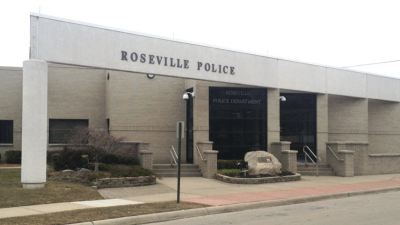MACOMB COUNTY — Residents will pay a 911 phone surcharge of up to 42 cents monthly per device beginning in July after a measure to pay for emergency dispatch services was approved by the Macomb County Board of Commissioners.
Per an amendment to a 1986 state law enabling 911 emergency service, the Macomb County Board of Commissioners has the ability to pass a resolution to assess a monthly 911 surcharge up to 42 cents to service users in Macomb County. The charge applies to all devices that use phone service, including tablets with data plans, with the exception of prepaid wireless accounts.
The money will be used to fund public safety answering points (PSAP), or dispatch services, throughout the county, whereas if the Board of Commissioners was to simply increase the funding to the Macomb County Communications and Technology Center (COMTEC), the dispatch center for the Macomb County Sheriff’s Office, nearly half of the county would not benefit from the increased funding. The county’s remaining PSAPs are Center Line, Chesterfield Township, New Baltimore, Richmond, Romeo, Shelby Township, Utica, Warren and the South East Regional Emergency Services Authority (SERESA), which covers St. Clair Shores, Eastpointe, Roseville and Fraser.
According to information provided to the Board of Commissioners, the surcharge is expected to cost $5.04 annually per device. Estimating that three-quarters of the 885,405 residents of the county have a device affected by the surcharge, the county expected that it would raise about $3.35 million annually, with the revenue to be allocated to the PSAPs based on the population they serve.
In the C & G Newspapers coverage area, the Sheriff’s Office would get about $1.62 million annually; SERESA would get $590,114; Center Line, $31,880; Shelby Township, $301,092; Utica, $19,931; and Warren, $527,774.
“The surcharge dollars are for all of the PSAPs in the county, and the legislation that we are using for that, puts that in the hands of the Board of Commissioners,” said Vicki Wolber, deputy executive for Macomb County, when explaining why the municipalities couldn’t just assess the surcharge themselves.
Emergency officials said the money would be put to use throughout the county, depending on the needs of the local PSAP, with needs including upgrades to equipment and personnel costs.
Macomb County is the only county in Michigan that did not already have specific funding for 911 services, said St. Clair Shores Fire Chief James Piper, the president of the Macomb County Fire Chiefs Association.
“We’re talking $5-a-year consumption tax on cellphone usage that directly funds 911,” he said at the meeting. “It ensures ongoing funding, year after year, to make sure these 911 centers continue to operate. 911 is the vital link to what we do in the Fire Department and the Police Department.”
The resolution approved by the Board of Commissioners May 12 called for the 42-cent monthly surcharge to commence July 1 and be charged through June 30, 2024. After that time, the measure will be placed on the ballot for citizens to vote on whether or not it should continue.
“Technology is active. It’s not static,” said Chris Krotche, the Armada Township fire chief. “If you don’t have a funding mechanism in place, it’s not going to stay state of the art.”
Not everyone thought the surcharge was necessary, however. Macomb Township Treasurer Leon Drolet, a former county commissioner, said that he felt the fact that Macomb County has made it this long without a specific 911 funding source showed that it prioritized emergency services.
“One would expect that our county tax would be prioritized toward our ... greatest needs. It says that Macomb County has prioritized public safety more than other communities because we’ve put it right into our tax base,” he said. “Our past board, which I had the pleasure of serving on, found ways to fund it without raising the tax.”
He said that, with the inflation rate up 8.5% and the cost of food and gas increasing at an even higher rate, he didn’t feel this was the year to put another tax on residents.
“We have to make a decision as to, are we going to be part of the problem or part of the solution?” he asked.
Although it was ultimately approved, county commissioners were split on the proposal.
District 11 Commissioner Harold Haugh, vice chair of the board, said he agreed that the cost of basic needs is rising, but he said the cost of emergency services is also on the rise.
“Another basic need is when that call is made, and that radio is used, that these guys sitting out there know what they’re running into (and) know how to get there quickly,” he said. “Time saves lives. You can call it a tax increase or you can call it supporting public safety.”
District 3 Commissioner Veronica Klinefelt said that the surcharge was not an exorbitant amount of money.
“This is a compromise. It’s two years, and then it goes to the voters. It’s 42 cents a month,” she said. “Even if a household has four phones, one cup of coffee per month, that is what we’re talking about here.
“I know the commissioners run on being anti-tax, but they also run on being pro-public safety.”
But District 9 Commissioner Antoinette Wallace said not everyone has the extra money available.
“The city of Mount Clemens did not support it. I’ve gotten many calls, not only from city commissioners, but residents asking not to pass this,” she said. “As someone like myself, who is taking meals to Mount Clemens High School to feed kids that I don’t know because they are coming to school noticeably smaller because their mother can’t afford to feed them like she did a few years ago ... 42 cents, it adds up. It’s just hard to make ends meet.”
An alternative means of providing the funding was to use the American Rescue Plan Act (ARPA) money, but District 12 Commissioner Julie Matuzak pointed out that, even if that was allowed (and commissioners were split on the legality of using it for dispatch services) there wouldn’t be any way to continue supporting the PSAPs in the future.
“I believe, when it comes up two years from now, that the residents of this county are going to vote for this because they’re going to understand how important it is, how important their safety is and how important it is to stay abreast of technology,” she said.
Other commissioners thought, however, that with money available in the budget, they should not be reaching out for more from taxpayers.
“We believe we can use the ARP(A) funding to fund this. We have the general fund dollars,” said District 13 Commissioner Joe Sabatini. “Putting this burden on the taxpayers is just not the right decision.”
Commissioner Jeff Farrington, of District 6, said he would be the first to allocate and prioritize money in the budget for COMTEC and the other PSAPs if the county executive were to request it.
“What I don’t like is putting a tax on it when we have the money in the budget,” he said. “If it’s truly a priority like the county says, put it in the budget.”
The motion to authorize the monthly 911 surcharge was made by Haugh and supported by Klinefelt. It passed by a vote of 8-5, with Farrington; Sabatini; Board Chair Don Brown, of District 7; Commissioner Phil Kraft, of District 8; and District 5 Commissioner Don VanSyckel voting against it.
 Publication select ▼
Publication select ▼



























